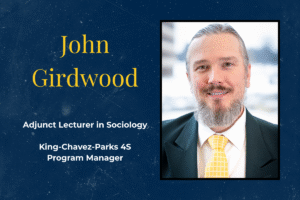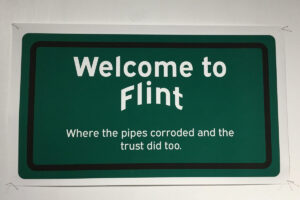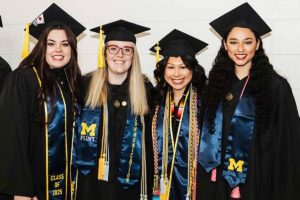The History Department of UM-Flint is adding three new courses to their catalog offerings. Starting in Fall 2014, students can take “Post War Europe” and “France and the World”—both taught by Professor Chris Molnar—and “Gods of the City: Religion and the Urban Landscape” taught by Professor Thomas Henthorn.
Post-War Europe will explore Europe’s struggles and transformations from 1945 to the present day. Following a long history of nearly continuous fighting, and the overwhelming destruction of two World Wars, European countries entered a period of relative peace in the postwar era. The class will look at Europe’s journey from destruction to cooperation, and its place and standing in the world since the end of World War II. Course discussion will focus on a variety of topics such as the Cold War, and the divide it created between eastern and western Europe—but also the remarkably similar experiences each side had with issues like reconstruction, population deficits, and reconciling former enemies to new societies. Students will also explore the challenges Europe faced, and faces, as countries known for emigration have become lands of immigration and culturally diverse populations grow.
Gods of the City: Religion and the Urban Landscape
Gods of the City will encourage students to explore the distinctly urban and suburban forms of religious experiences that have developed in the United States. American cities have been the site of much of what is most creative in modern American religion. Through readings, site visits, and an oral history project with the Arab American Heritage Council, students will learn about the way the urban and suburban physical environment has shaped religious expression—from storefront churches to suburban mosques.
A major component of this course will be engaging Flint’s Arab-American community in a civic engagement project. Students will be able to learn about the rich diversity of traditions within the Arab-American community by interviewing local practitioners, recording their experience, and then making the interview available on the web.
Students will walk away from this course with more than knowledge of different traditions. They will learn about the ways religious expression contributes to the mosaic of America’s communities. Such knowledge is critical in developing cross-cultural competency—a characteristic that is increasingly important to navigate and succeed in a global society.
France and the World will look at France from 1789, the time of the French Revolution, to the present day. Students will learn about France’s influence on the world as well as the ways that France has been influenced by developments in the wider world. Professor Molnar wants to include social and cultural topics such as music, imagery, art, and the experiences of everyday citizens in addition to political topics. Molnar also wants to explore the call for universal human rights that sprang from the French Revolution—a novel idea at the time—and their impact on French history across the centuries. This will include a close look at France’s overseas territories and Frances treatment of immigrants and minority groups. Another unifying theme of the class will be France’s stance on U.S. involvement in Europe and how it differed from other European opinions.
To learn more about the History Department at UM-Flint, please visit their website. For information about their other course offerings, visit the UM-Flint Course Catalog.




